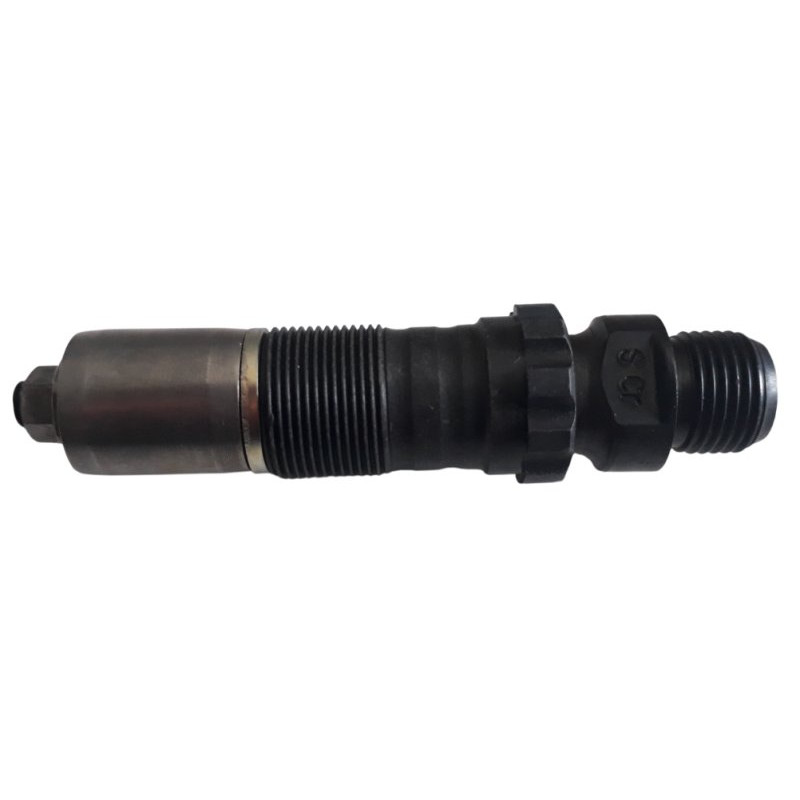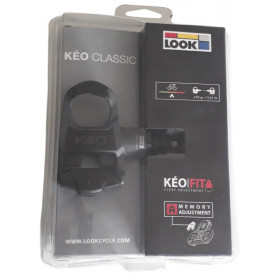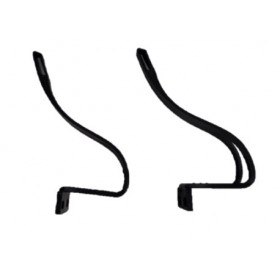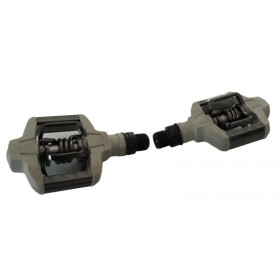 zoom_in
zoom_in
Pedal axle Shimano 105 PD-1050
- 2 Items
- New

€7.49 VAT included
Bike pedal axle: key features on a vintage road bike
When restoring a vintage road bike, every component matters — and the pedal axle is no exception. This seemingly simple part plays a crucial role in transferring power from the rider to the drivetrain. It connects the pedal body to the crank arm, allowing smooth and efficient pedaling. Let’s take a closer look at the specific features of vintage pedal axles and what to watch for during a restoration.
What is a bike pedal axle ?
The bike pedal axle is the spindle that runs through the pedal and screws into the crank arm. Typically made of steel (and sometimes aluminum in later models), the axle houses ball bearings or needle bearings that allow the pedal to rotate freely as you ride.
On a vintage road bike, pedal axles are often crafted from hardened chrome-plated steel, with careful machining and threading. Most use the British standard 9/16" x 20 TPI thread, but some older French or Italian models have non-standard threading, so it's essential to check before replacing or rethreading.
Key features of a vintage pedal axle
1. Threading and direction
Vintage bikes sometimes have unique threadings. It’s important to know that:
-
The right pedal axle (drive side) threads in clockwise.
-
The left pedal axle (non-drive side) has a reverse thread, meaning it tightens counter-clockwise.
This reverse threading prevents the pedals from unscrewing themselves while riding.
2. Axle length
Pedal axle length varies depending on the pedal model. It affects chainline, foot positioning, and overall riding ergonomics. Older bikes sometimes feature slightly longer axles, resulting in a wider Q-factor (the distance between the pedals), which may feel different compared to modern standards.
3. Compatibility with classic pedals
Vintage road bikes often use metal cage pedals or pedals with toe clips and straps. These pedals usually have serviceable axles — meaning you can disassemble, clean, and regrease them. This design reflects a time when bike components were built to last and to be maintained over the years.
4. Materials and weight
Vintage pedal axles are typically made of solid steel, with some high-end versions using hollow axles to reduce weight. While modern pedals emphasize lightweight construction, older components prioritize durability and mechanical reliability.
Maintenance and restoration tips
Restoring a vintage pedal axle involves a few key steps:
-
Removing the pedal using the correct-size pedal wrench.
-
Cleaning and degreasing the axle thoroughly.
-
Inspecting the bearings and the inner races for wear.
-
Greasing and reassembling to ensure smooth rotation.
If the axle is bent or too worn, you can often find a replacement axle, but you’ll need to double-check threading type and length.
Where to find vintage pedal axles ?
Several specialized shops offer replacement pedal axles and parts for vintage bikes. Online vintage bike stores, second-hand marketplaces, enthusiast forums, and local bike swaps are excellent places to find compatible pieces, both new old stock (NOS) and used.
In summary
The bike pedal axle may be small, but it’s a vital part of a vintage road bike’s performance and authenticity. With unique threading, specific lengths, and classic serviceable designs, it deserves careful attention when restoring or maintaining an older machine. A well-chosen and well-maintained pedal axle means smoother pedaling and a ride that stays true to the spirit of classic cycling.




